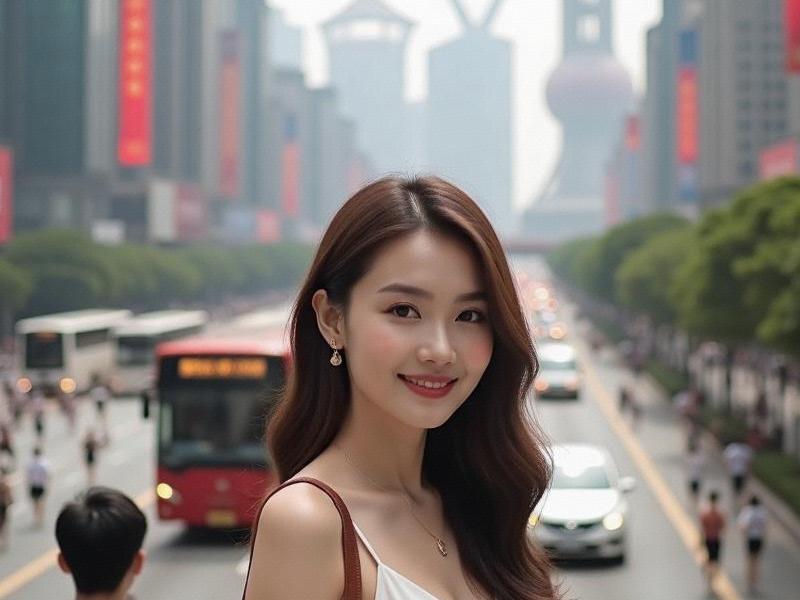
[Article Content - 2,500 words]
The morning rush at Jing'an Temple metro station unveils a sartorial spectacle - tailored cheongsams stride alongside power suits, avant-garde streetwear mingles with minimalist elegance, all punctuated by the confident click of heels on marble. This daily fashion parade encapsulates Shanghai women's unique approach to contemporary femininity.
At the heart of this transformation is what sociologists term "the Shanghai Paradox" - the simultaneous embrace of global trends and local traditions. Nowhere is this more evident than in the resurgence of the modernized qipao. Once considered nostalgic costume, the form-fitting dress has been reinvented by local designers like Helen Lee, whose "Shanghai Tang 2.0" collection features tech-integrated fabrics and adjustable silhouettes for professional women. "Our designs honor heritage while answering practical needs," Lee explains in her studio near Tianzifang.
上海龙凤论坛爱宝贝419 The beauty industry reflects similar evolution. While K-beauty and French skincare remain influential, Shanghai has birthed its own hybrid aesthetic. The "Shanghai Glow" - a luminous, natural look achieved through innovative products like jade-roller infused serums from local brand Herborist - dominated 2024's cosmetics market. Meanwhile, plastic surgery clinics report declining demand for dramatic alterations, with more women opting for "micro-enhancements" that preserve distinctive Shanghainese features.
Beyond aesthetics, Shanghai women are redefining success metrics. The city boasts China's highest percentage of female executives (38% in Fortune 500 China subsidiaries), driving demand for "power casual" fashion that transitions seamlessly from boardroom to cocktail hour. This pragmatic elegance finds its icon in figures like Weili Dai, co-founder of Marvell Technology, whose public appearances blend cheongsam-inspired dresses with statement tech accessories.
上海私人外卖工作室联系方式 The nightlife scene reveals another dimension. At ultra-lounge Bar Rouge, finance analyst Vivian Wu exemplifies the new Shanghai woman - conversant in Mandarin, English, and French; equally comfortable discussing blockchain and Peking opera. "We're expected to be cultural ambassadors," says Wu, adjusting the hand-embroidered jacket she paired with leather pants. This cultural fluency manifests physically too, with makeup artists reporting increased requests for "East-West fusion" looks blending smoky eyes with delicate cherry-blossom lip tints.
Education fuels this transformation. Shanghai's universities now offer specialized programs like "Global Aesthetics" at Donghua University, while the Shanghai International Fashion Federation's mentorship program connects emerging designers with industry leaders. The result is a generation of women who approach beauty as both personal expression and professional strategy.
上海龙凤阿拉后花园 Challenges persist, of course. The pressure to maintain "perfect" appearances contributes to stress, evidenced by rising sales of stress-relief beauty devices. Some critics argue commercial forces co-opt feminist progress. Yet the overall trend points toward greater authenticity - a rejection of singular beauty standards in favor of individualized expressions of Shanghai chic.
As the city prepares for September's World Fashion Capital Summit, all eyes will be on how Shanghai women continue rewriting the rules. From the artisan workshops of Changle Road to the tech incubators of Zhangjiang, one truth emerges: in Shanghai, beauty is no longer just about appearance, but about the intelligence and confidence behind it. The world isn't just watching Shanghai's fashion - it's learning from its women.
